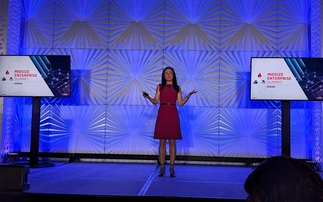2006 will be an important year for chief information officers (CIOs), as IT becomes increasingly central to strategy and planning in the private and public sector.
Computing asked a selection of leading CIOs and industry figures for their view of the challenges, priorities, hopes and fears for this year John Higgins Director general Intellect 2006 n...
To continue reading this article...
Join Computing
- Unlimited access to real-time news, analysis and opinion from the technology industry
- Receive important and breaking news in our daily newsletter
- Be the first to hear about our events and awards programmes
- Join live member only interviews with IT leaders at the ‘IT Lounge’; your chance to ask your burning tech questions and have them answered
- Access to the Computing Delta hub providing market intelligence and research
- Receive our members-only newsletter with exclusive opinion pieces from senior IT Leaders

















